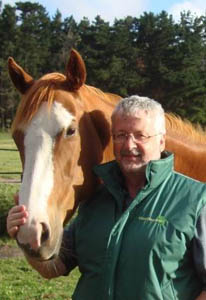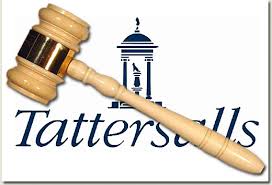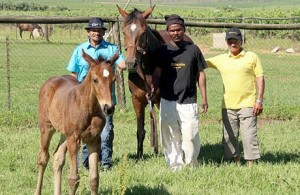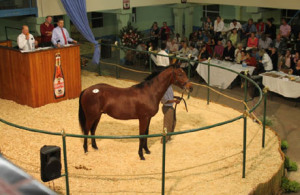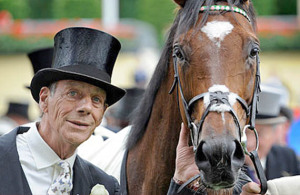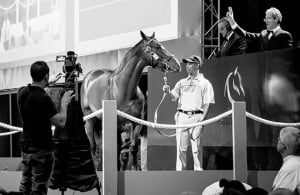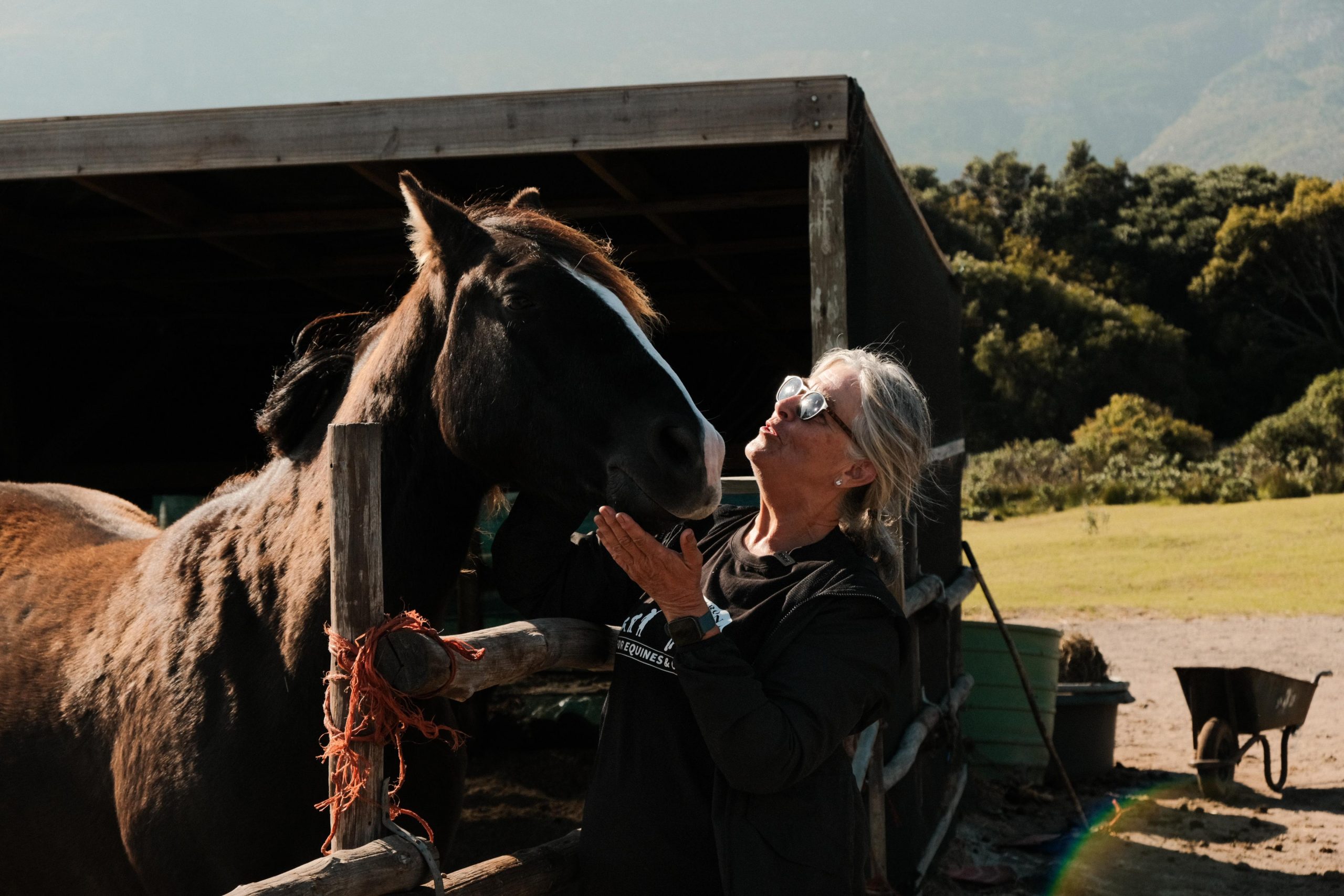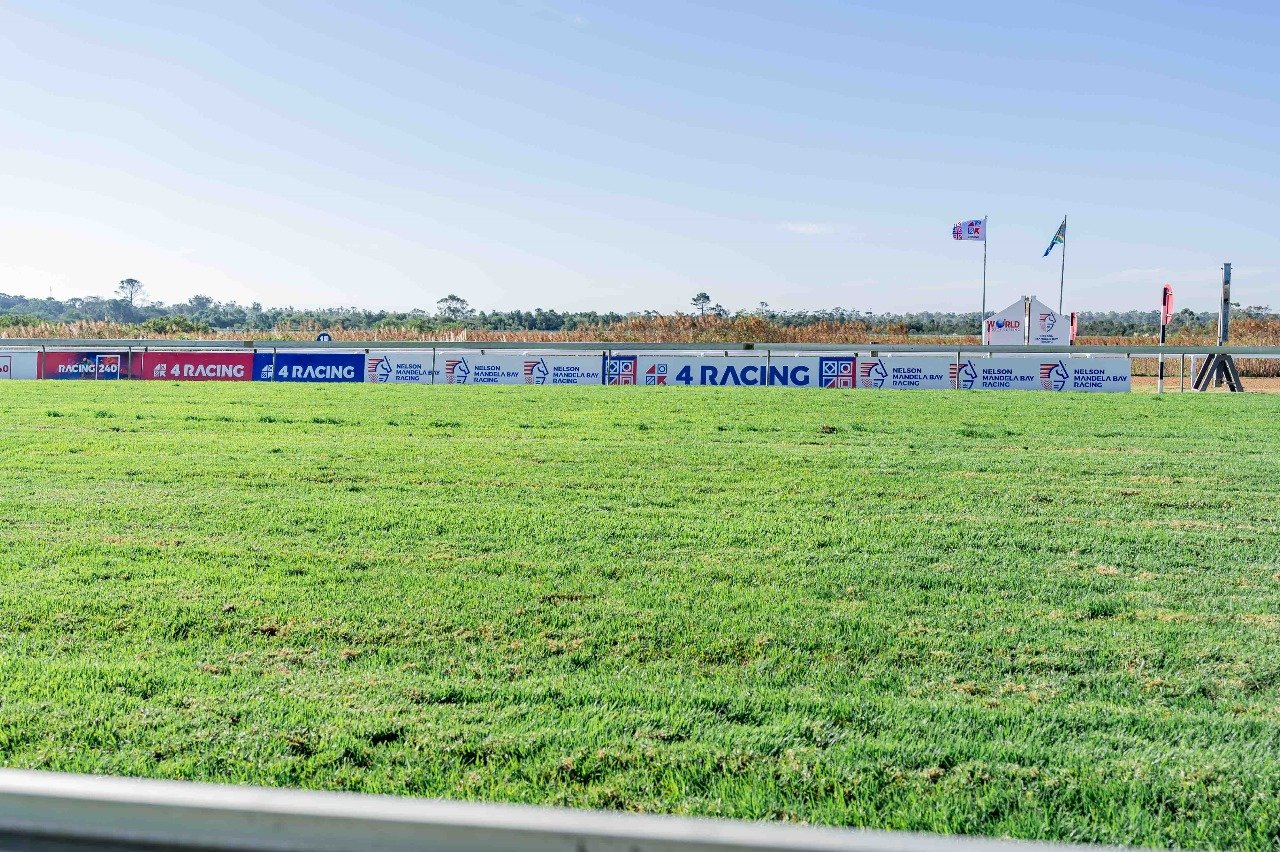Allan Bloodlines is a sales consultant and selector for racing and breeding, racing and breeding manager, owner/breeder, stallion syndicate manager and promoter of various South African interests at home and abroad. Allan’s involvement in pinhooking in South Africa is in conjunction with Balmoral Stud. David has been a member of the SA TBA and a colour holder here for ten years and has the following to say about pinhooking.
At a post-National Yearling Sales dinner gathering, a comment was relayed to me with a degree of humour. “People say you shouldn’t be associating with pinhookers”.
“Did you say hookers?” I ventured. Now that would be good advice. But Pinhookers make the Bloodstock World go round.
UK and Irish Pinhookers, as their main business and as consigners to sales, are mostly dedicated to one of the following:
buying foals, most of which are bought to resell in large numbers in the yearling market place – the figures below illustrate how large;
buying yearlings to prepare for Breeze Up Sales (“Ready to Runs”);
buying in-foal mares to prepare and sell the foal inside plus the mare herself back in foal, all within a year;
Two of these require a large scale foal market where the majority of foals are pinhooked to be sold as yearlings. True, an increasing number at the top end are bought to race in order to by-pass yearling sales altogether, but of the 2,000 foals offered in UK and Ireland, well over half are bought – in what are widely regarded as the most professional and workmanlike of sales – for yearling resale 10 months or so later. The same “Foal Men and Women” also buy in Kentucky and France to supplement their pinhooking numbers.
Many breeders in UK and Ireland, ourselves and clients included, prefer to sell as foals. At Goffs and Tattersalls, with escalating prices as each sale week progresses through the graded catalogues, a foal will nearly always find its value in the ring by having more people “on” him/her than “on” ordinary yearlings. The vendor knows (and appreciates) that the buyer is likely to be a pinhooker. Our own foal selling is targeted at the “better days” by virtue of the mare pedigrees, whereas we might buy a cracking individual at the lower end early in the sale as a racing prospect. We are syndicating one such filly now – bought as a foal 18 months ago.
The pinhooked foals in UK/Ireland alone make up over 30% of all yearlings sold the following year in the same countries. The number of pinhooked foals in the UK and Ireland yearling sales is actually larger through some Kentucky pinhooks flown transAtlantic to grow, usually, on Irish grass.
In South Africa, the word “pinhook” is now used liberally in relation to yearling purchases for the two Ready to Run Sales. In UK and Ireland this is a major part of the scene carried out by specialist organisations who buy for this purpose. They are not trainers for racing; the horses do not go to racing trainers; they are not racehorse owners; they are not breeders; they are traders and pre-trainers with the in-house skills to achieve a goal which is to prepare a horse over a period of six months or so for a single performance on a single day without overly stressing the animal – and to get the horse sold. There are no sales races involved – more of that below. They lay out their own money, perhaps bringing in investors at some point in the process. Like foal pinhookers but with a later version of a horse, their (and perhaps their agents’) selection skills are excellent for purpose and their budget control is strict.
89% of ReadytoRun horses in UK/Ireland this year were yearling pinhooks.
Regionality
Some vendors in South Africa are not keen on pinhookers buying their yearlings for fear of the pinhooker making money out of them or because they won’t know for many months who may train their product or perhaps simply because it is non-traditional.
In contrast in “the north”, many young horses are sold as foals therefore 30% or more of yearlings are – for that reason alone – not being sold by their breeders. A reason for another chunk not being consigned by breeders is the appointment of professional consignment companies to sell them. If not to the extreme of the huge Taylor Made operation in the USA (where chipped swipe cards are issued to viewer – swipe, stand there and your selected yearlings will appear), in the UK and Ireland, The Castlebridge Consignment, Ted Voute, Jamie Railton and other consignment companies employ a squad of efficient showing coordinators and top showing handlers as they sell other people’s horses. Indeed many stud farms sell more of other people’s horses than horses born on their farms. In a culture where farms often do not charge commissions to permanent boarders, selling other horses is a way for some of making a buck at the same time as raising the consignment profile.
A little-known contribution to juicing up the sales process is paid by Tattersalls: £1 per thousand guineas achieved in the ring, payable to the lead up person. Showing/lead up people work around the world as freelances. Home-based lead up people working for one boss also have a chance of a few quid extra. Sometimes many quid!
A yearling vendor may have a view that pinhookers are in the game for a particular yearling, but it is not always obvious who has bought and why. In South Africa, trainers lead the buying. At the “engine room sale” Tattersalls Yearlings Book 2 (750 or so Lots) only around 5% were signed for by trainers and some of those would be buy-backs for owner/breeder clients. Most are bought by bloodstock agents and racing managers with – or without – the involvement of a trainer. A few trainers do look very extensively at sales, but most fit in their sales visits when they can, sometimes commenting that their owners would give them hell if they spent too much time there. Even in Newmarket, Newmarket trainers will mostly go to the sales when their mornings are finished (many for as little time as possible due to racing, evening stables etc) whereas consultants/agents/managers/spotters have been looking since first light getting through the catalogues in the short viewing windows: perhaps a couple of days tops at the start then rotating in boxes, out, clean the box and in, throughout the sale. As much “looking”, researching and discussing is done while selling is going on – dashing back and forth to be in the ring at the right time – as before the sale.
Selective
South African consigners may have become used to overseas lookers wanting to see “only Friday’s now” then coming back later. This is through force of habit. At sales lasting (say) 5 days, Thursday’s and Friday’s might be on the sale ground, but Saturday’s not yet in.
Some trainers – one or two at the very top of the tree – actually don’t go to sales at all, knowing that they will be sent excellent yearlings when the time comes. The late Sir Henry Cecil, who perpetually deferred to his owners’ decisions in interviews even though he of course had huge input, always expressed gratitude for being selected to train Frankel. Another double Derby winning trainer with whom we work closely would rather not be involved in the selection process at all, but dutifully shows up to contribute, if local, when required. Of course many trainers enjoy the sales and the opportunities – the atmosphere, networking, supporting owner/breeder clients who may not sell, and just being there when they can – but not many enjoy slogging round looking at a lot of horses they know they won’t like. That is for others to sift through and there is a reason why shortlists are usually short. Of course trainers very often review their principals’ and agents’ shortlists and give an opinion or, if leading the buying themselves whether on spec or for an existing client, mostly appoint their own preferred agents to act for them under instructions/mutual consultation and then review the lists.
Allan Bloodlines’ best successes have been when asked to buy a few at sales for trainers who will not attend that sale at all. Prior discussion eliminates some unacceptable sires and we know the individually preferred types. Or when buying for ourselves or our syndicates. The process is no different to our purchases of breeding stock when the client is not present. Communication during the process is good but “No point in buying a dog and barking yourself” would sum up some clients’ views. But I digress, albeit in illustrating the scene.
What is a good bid?
Consider this: who would a yearling vendor rather have buy a sensibly priced yearling? A buyer from a small racing country where a win will not enhance the mare’s pedigree at all – perhaps the opposite – or for training by a trainer the breeder doesn’t rate, or by a Breeze Up pinhooker who will reoffer at a very competitive sale. No-brainer. Thus are pinhookers worthy and welcome buyers.
The word goes round Park Paddocks during Tattersalls Book 2 (of 4) that “The Breeze Up boys are getting in”. This is not cheap purchasing, but means that the top end in Book 1 overflowing into Book 2 is more or less bought out. Really cheap purchasing is not the province of yearling pinhookers because it is difficult to get into the right Breeze Up Sales – that in itself being a hefty risk factor. One or two may spend the equivalent of several million rand on a Galileo or an Oasis Dream within their portfolio if they think they can improve the horse to make several more million, but most operate at a working man’s budget.
Even if the pinhooker does not buy a particular yearling, his or her bidding often gets things moving for the vendor. Two CTS Book 2s ago, the Balmoral Team bid on many and speeded proceedings up considerably whether buying or not. Amidst general appreciation by vendors, one South African professional did remark “With respect, David” (which in UK means exactly the opposite but let’s give the benefit of the doubt) “other people are spending a lot more than you pinhooking”. I hung my head in shame but privately reflected on profit margins and the desire to sell and have an empty head collar, not qualify for a race. The exercise helped build a business whilst showing future potential investors what margins can be achieved. Next time round – for our team – came an uplift in pedigrees plus extra imports – these being necessary to get into the right sales in a developing and increasingly crowded situation.
Finally a few notes on factors and influences:
Sales Races
A feature of South African ReadytoRun consignment is the existence of high value races attached to the sales, their novelty succeeding in creating strong interest as well as an opportunity to “qualify” one way or another. In the overseas Breeze Up sales there are no such sales races and no such influence on pinhooking or selling. “Getting them sold” is the ethic right across the board.
Indeed “up there” there is hardly a sales race of any kind left. Tattersalls have their successful and quite costly “Millions” races – there are six races for 2 and 3 year olds. They are strictly for Book 1 Yearlings and there are no races any more for Books 2, 3 and 4. There is no compulsory entry. Entries are made (or not) three months or so after purchase when the owner/racing manager/trainer or pre-trainer can make a more informed decision to spend on the entry fee. The long established – and great fun – Tattersalls Ireland and Doncaster Sales Races are founded on giving lower cost horses a crack at hefty prize money whilst avoiding taking on high cost horses owned by the big battalions. Again these are entered (or not) in January after September purchasing. Goffs who splashed out with the Cartier Million have no sales races at all.
Separately there are two “sales races” – voluntary entry – not attached to a particular sale but open to yearlings that went through any sale costing no more than a fixed maximum. In the Weatherbys Super Sprint (5 furlongs in July), one pound less is carried per £3,000 paid lower than that maximum. 25 runners – prize money to 10th and £123,000 to the winner. And a great day out for the owners. There is another comparable opportunity but 6 furlongs in October, usually on softer ground. The initial entry is made by many to “buy the option” and then there are several forfeit stages with additional payment to stay in as the season goes on.
The Breeze Up Scene
Just over 800 2 year olds were catalogued in the 2014 UK and Irish Breeze Up Sales – two at Tattersalls, one (the Daddy of them all) at Doncaster, one new one at Gorsebridge in Ireland and another new one in London replacing Goffs’ sale at Kempton Park. They breeze on site or nearby except in London where the sale at Kensington Palace did not actually take over Hyde Park. Breezing is beforehand at Kempton Park Racecourse, 12 miles away on a route over the river, past Kew Gardens, Richmond Park and Twickenham to the course. The auction – the day before Royal Ascot – was at The Orangery at the Palace with a video link and bid spotters also at Kempton where the horses were paraded. The French and German Sales are not included in these figures but the same consigners pinhook to send to those venues as well.
Of those 800 “Breezers”, 720 or about 89% had been bought as yearlings by pinhookers, some large operations, some smaller. Every yearling purchase price is published in the press a day or two before the Breeze Up sale to guide buyers. Exactly the same at yearling sales where every foal purchase price is published. Every one of these Breeze Up pinhookers is a specialist, buying and preparing the horses to breeze for a living, combing every yearling sale in several countries for stock that will provide them with a good profit – plus a huge “touch” or two thrown in to keep the press writers fires fuelled, and to celebrate while passers-by slap the successful pinhooker on the back.


